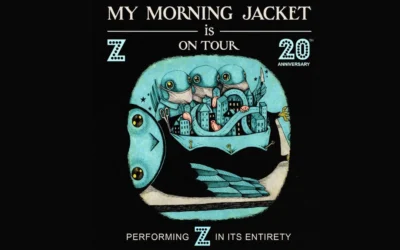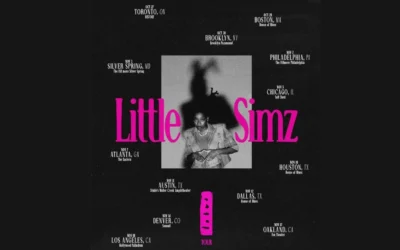The infamous practice known as dynamic pricing is finally under the spotlight.
While the term is not new, particularly for U.S. concertgoers, the practice is quickly becoming an almost globally-experienced phenomenon — from Europe to Australia, the United Kingdom, and now, the states. The practice has drawn fan fury across the world like never before amid ticket fiascos from big-name acts like Swift, Oasis, Adele, and Green Day.
Over the past year, controversies surrounding the term have made so much noise that the Oxford Dictionary shortlisted “dynamic pricing” for Oxford Word of the Year 2024.
Earlier this month, Oxford University Press selected “brain rot” as the word of the year among six candidates, but for some furious fans, “dynamic pricing” was the winner. At the end of the day, the practice will likely become more visible and vocal from now on — and will be used in several arguments.
Oxford Dictionary defines “dynamic pricing” as the practice of varying the price for a product or service to reflect changing market conditions; in particular, the charging of a higher price at a time of greater demand. According to the established institution, this year has seen a heightened awareness of – and controversy over– its [dynamic pricing] use.
“In some high-profile cases, dynamic pricing was used in setting prices for concert tickets, resulting in fans (often reluctantly) paying very high prices to see their favorite artists,” a statement reads regarding Oxford Dictionary’s reasoning for shortlisting the word. “In some cases, fans were in a virtual queue for hours before realizing how much they would be asked to pay, leading to questions about the transparency of dynamic pricing practices, as well as value for money.”
While not explicitly against the law, the practice of dynamic ticketing has drawn significant criticism from consumers and regulators alike, with increasing frequency as more artists have signed-on to the practice.
Oasis Reunion – happy news turned into frustration during ticket sales
The Competition and Markets Authority (CMA), the principal competition regulator in the United Kingdom, launched an investigation into Ticketmaster, placing the practice of dynamic pricing at the forefront of the ticketing industry. During the Oasis reunion tour ticket sale in the UK, fans fumed over the ticket buying process, which saw many sit through lengthy wait times, only to see “in demand” prices surged to several hundred pounds higher than the advertised amount.
Deniz Keser, who lives in Dublin, Ireland, told TicketNews that she always had to look for tickets to tours and shows the minute they went on sale. Still, she could never manage to purchase tickets via Ticketmaster due to either surging prices or sold-out tickets as a result of the company’s dynamic pricing, “platinum tickets,” and VIP package prices.
“It is always an issue here in Ireland,” Deniz added. “Once a concert is announced, you have to act quick. Despite that, neither I nor my friends could buy tickets to Taylor Swift or Oasis gigs.”
Ayse Ezgi Yildiz, a London resident excited for the reunion news, purchased tickets to Oasis’ 2025 tour, but only after she waited for four hours in the virtual queue. She was only able to purchase two tickets, while she had intended to buy four for herself and her friends.
Yildiz told TicketNews she hesitated to buy those two tickets when she realized the prices had tripled from the original face value, which initially ranged between £100-150 per ticket. However, she had to be quick, so she would not be locked-out of Ticketmaster’s system; after all, she already spent four hours for tickets.
“I thought I should hurry although I felt deceived, but I bought anyways, considering I might resell them later,” she said.
“Consumer law is clear,” a CMA press release read. “Ticket sales sites must be transparent in their dealings with consumers and give clear and accurate information about the price people have to pay. Failure to do so may breach the law.”
While the UK regulator was investigating Ticketmaster after the Oasis debacle in fall 2024, the Australian government announced it would ban the practice of dynamic pricing entirely. The move followed an explosive investigation by ABC’s Four Corners, which shed light on Ticketmaster’s parent company Live Nation and its market manipulation.
The Australian government noted in a statement that “from concert tickets to hotel rooms to gym memberships, Australians are fed up with businesses using tricky tactics that make it difficult to end subscriptions or add hidden fees to purchases.”
“These practices can distort purchasing decisions, or result in additional costs, putting more pressure on the cost of living,” the federal government said.
What or who causes the ticket pricing surge?
The very practice of dynamic pricing speaks for itself, and it’s no wonder that artists, promoters and venues collaborate on it. The Cure’s Robert Smith called-out dynamic pricing, noting that “most artists hide behind management. (…) It’s just driven by greed.”
Regulators are slamming the purchasing process, specifically because there is no announcement prior to the sale that the surging tactics might be in place. Then, consumers are left with a stressful decision after lengthy wait times, stuck deciding whether or not they can spring for tickets they think are one price, only to find they are actually a different – and significantly higher – one.
Despite all arguments on the subject, the post-pandemic period has seen record-shattering profits in the live event industry, drawing billions on the back of high-profile tours from star-studded acts like Taylor Swift and Beyoncé. Likewise, British rock band Coldplay and Taylor Swift again have reached historic milestones in the live entertainment industry in 2024; Coldplay now holds the record for the most tickets sold on a single tour, while Swift’s Eras Tour shattered revenue records.
Coldplay’s Music of the Spheres World Tour has sold 10.3 million tickets—the highest total ever achieved by any artist on a single tour. Its success has also translated to massive earnings, grossing over $1.3 billion to date. Swift sold 5.2 million tickets across 80 shows in 2024 alone, with Pollstar reporting $1.04 billion in earnings for the year.
In other words, ticket prices are skyrocketing, especially at big shows, but fans still shell out a good amount of money to see their favorite performer.
Concert promoter FPC Live’s co-president Scott Leslie told the Milwaukee Journal Sentinel that “people have a different kind of relationship with artists than other entertainers. Whether it’s the lyrical connection or whatever else, it’s individual for everybody, and where the demand comes from is being in the room with them for those two hours,” Leslie said. “That is not something that is able to be replaced, and that is why demand is so much crazier.”
Bruce Springsteen is one of the artists who actually stood by the uptick in ticket prices. Regarding his tour last year, he told Rolling Stone that if a ticket broker is allowed to make so much money off a resale ticket, “why shouldn’t that money go to the guys that are going to be up there sweating three hours a night for it?”
The Cure, Iron Maiden, and Broadway Legend Andrew Lloyd Webber Speak-Out
Following the Oasis ticket debacle in the UK — and the duo’s promise to not use the practice for North American shows— composer Sir Andrew Lloyd Webber, known for hit musicals like “The Phantom of the Opera” and “Cats,” called out dynamic pricing, condemning it as “racketeering.” He said that he doesn’t think theaters “should be in the business of trying to push prices up.”
“You need to break even, but I don’t like making theatre inaccessible,” Webber told The Sunday Times magazine. “Dynamic pricing is racketeering, really — it’s completely wrong.”
Known for trying to keep ticket prices affordable for fans, The Cure opted-out of the use of Ticketmaster’s “platinum” and “dynamic pricing” practices on their 2023 tour.
“We didn’t allow dynamic pricing because it’s a scam and would disappear if every artist said, ‘I don’t want that,’” The Cure’s Robert Smith said. “But most artists hide behind management. ‘Oh, we didn’t know,’ they say. They all know. If they say they do not, they’re either f***ing stupid or lying. It’s just driven by greed.”
Iron Maiden is another band who spoke up against the practice. The band made it clear that they won’t be using this method on their “Run For Your Lives” tour set for 2025.
Legal Action in the U.S.
In the United States, more than two dozen fans filed lawsuits against Ticketmaster over the Taylor Swift tickets fiasco, alleging that the ticketing giant and Live Nation Entertainment subsidiary engaged in fraud, price fixing, antitrust violations, and even “intentional deception” in 2022.
Swift’s Eras Tour presale was so chaotic that it sparked an investigation by the Department of Justice into Live Nation and Ticketmaster’s 2010 merger, pointing to monopolistic and alleged anticompetitive practices.
FPC Live’s Charlie Goldstone noted that while ticketsellers like Ticketmaster don’t set the price of tickets, they have the ability to use algorithmic pricing tools like dynamic pricing. These tactics allow Live Nation and Ticketmaster to surge pricing based on market demands.
Currently, both Ticketmaster and Live Nation have been targeted in an antitrust lawsuit by the Department of Justice and 39 states, as well as the District of Columbia, which aims to break-up the pair.




